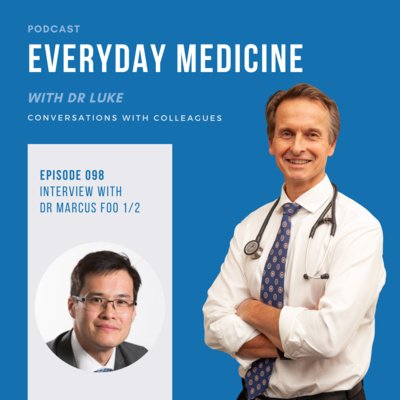Everyday Medicine by Dr Luke Crantock
Conversations with colleagues providing helpful ideas and advice in healthcare
Episode 99. Radiation Oncology with Dr Marcus Foo (Part 2)
Radiation oncology occupies a very important place in cancer therapy as an essential member of the multidisciplinary approach to cancer treatment . Of the near 146 000 Australians diagnosed with cancer each year is estimated that about half would benefit from radiation therapy as part of their overall cancer treatment.
Radiation therapy is a highly cost-effective cancer therapy contributing only about 10% of each healthcare dollar spent on treating cancer overall yet vital in about 40% or cancers that are cured. The technology employs ionising radiation that causes the ejection of an orbital electron which is the molecular event leading to damage and eventually cell death. The radiation used may be either electromagnetic in nature using photons or gamma rays or particulate- directing a stream of electrons, protons or other atomic particles to the target and causing DNA damage to both normal tissue and tumour cells. Cells are most susceptible in the G1 and G2 phases which represent growth and preparation for mitosis as well as the mitosis phase referred to as the M phase. Additionally, hypoxic cells are thought to be less susceptible to radiation than well-oxygenated cells as free radicals formed by ionising radiation are more easily repaired in the absence of oxygen.
Episode 98. Radiation Oncology with Dr Marcus Foo (Part 1)
Radiation oncology occupies a very important place in cancer therapy as an essential member of the multidisciplinary approach to cancer treatment . Of the near 146 000 Australians diagnosed with cancer each year is estimated that about half would benefit from radiation therapy as part of their overall cancer treatment.


